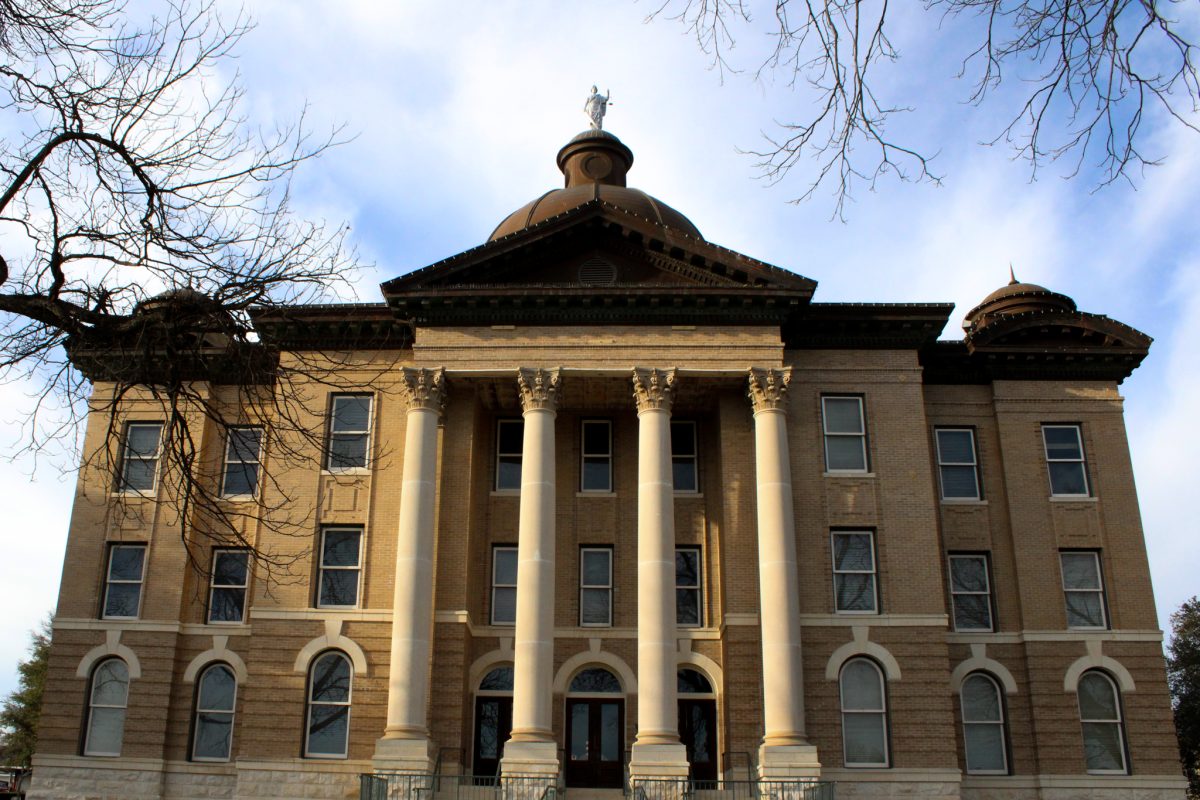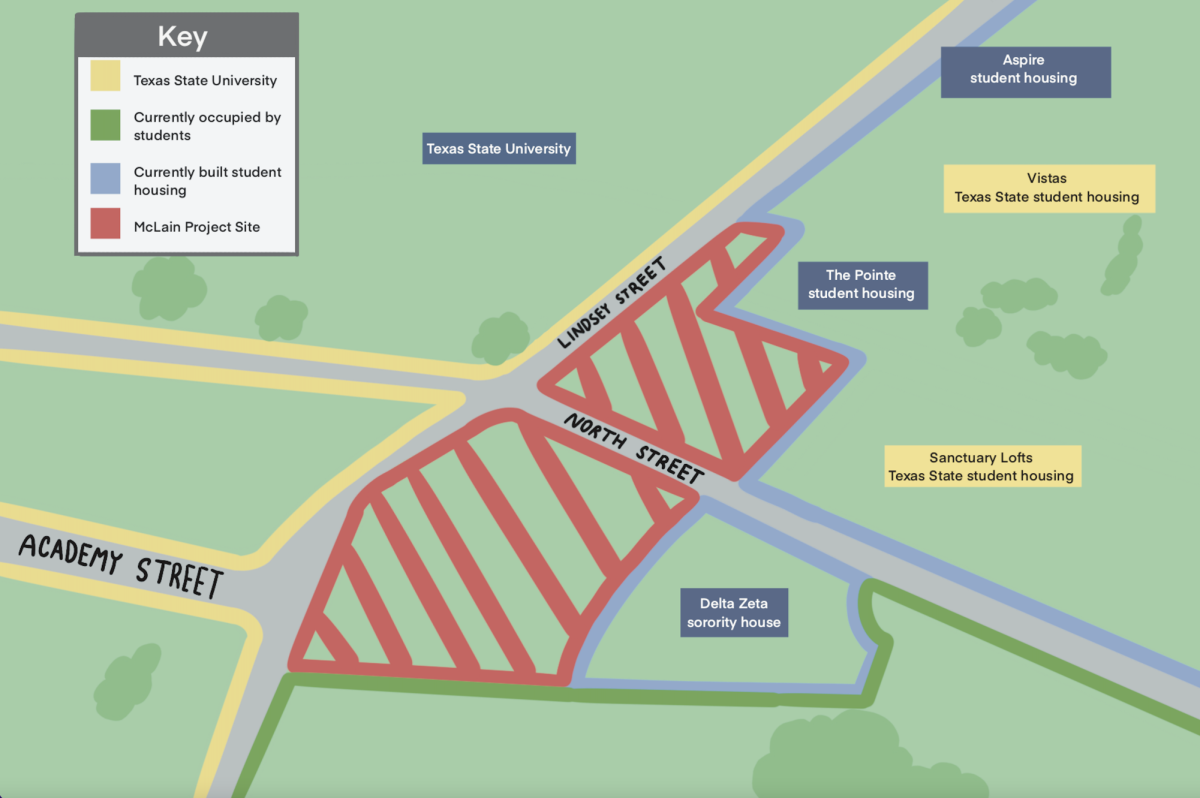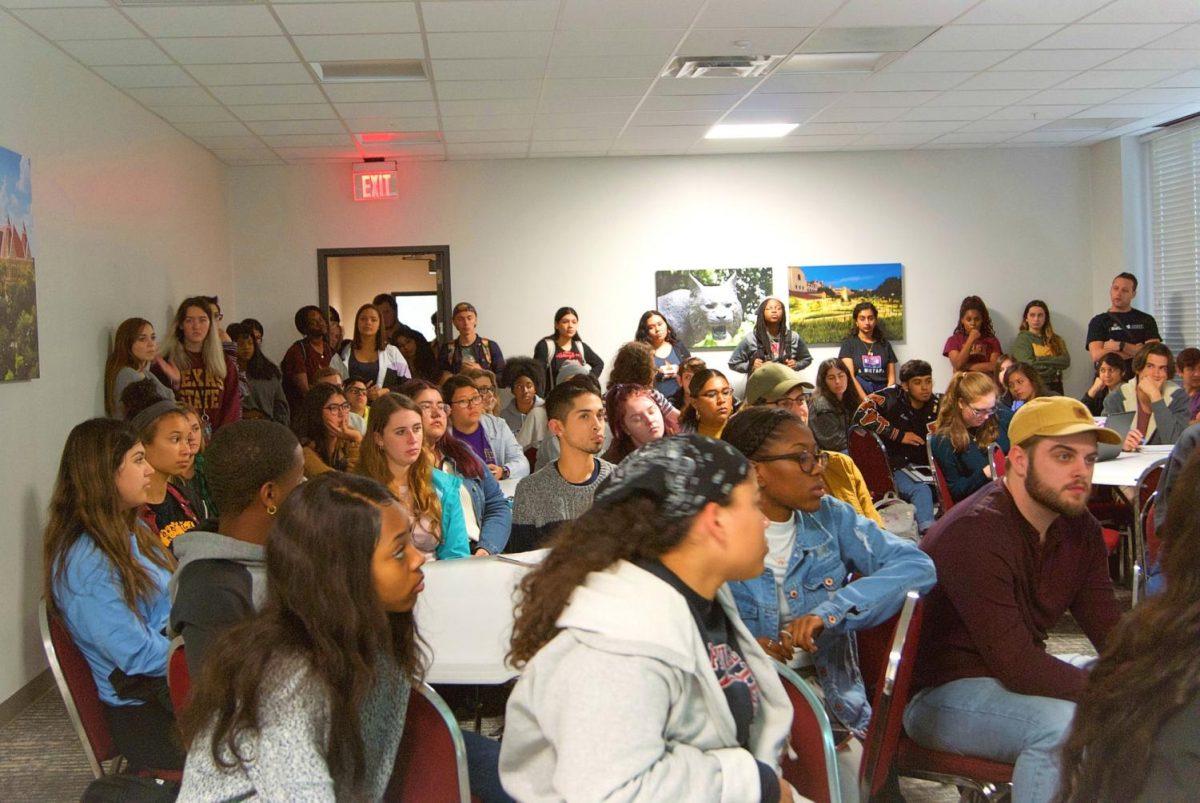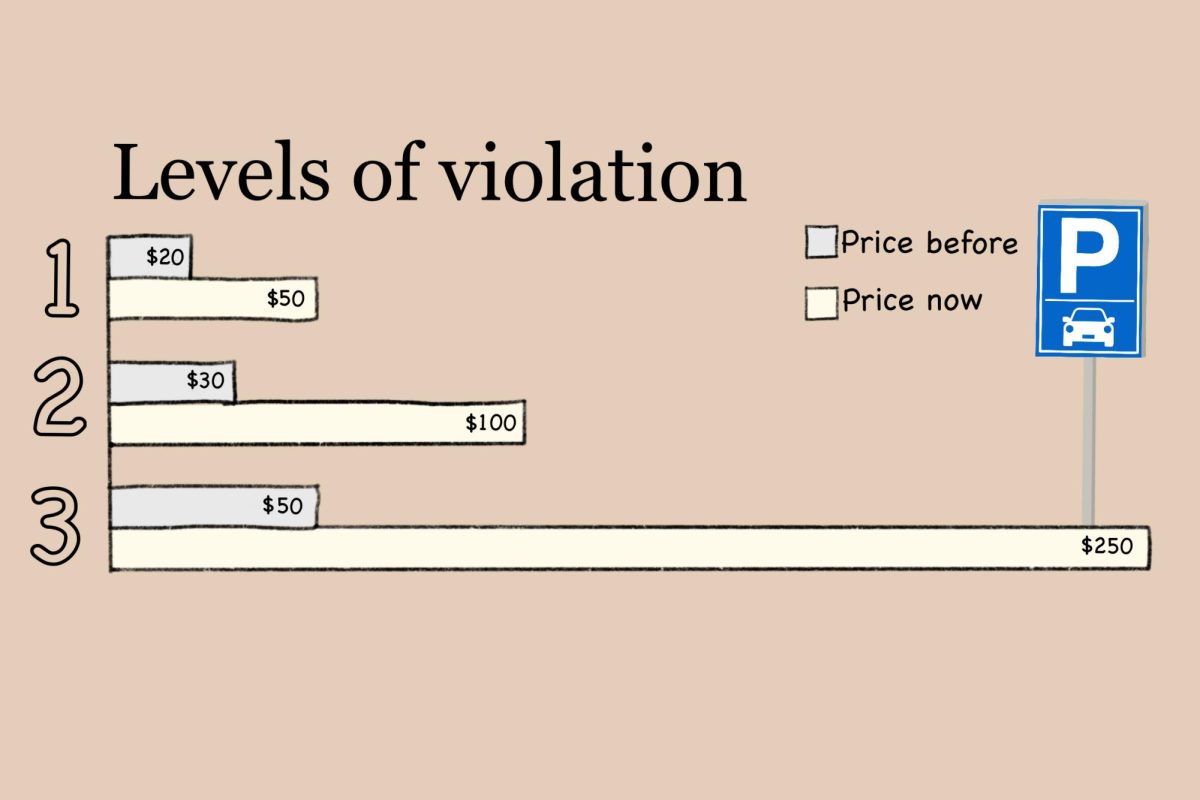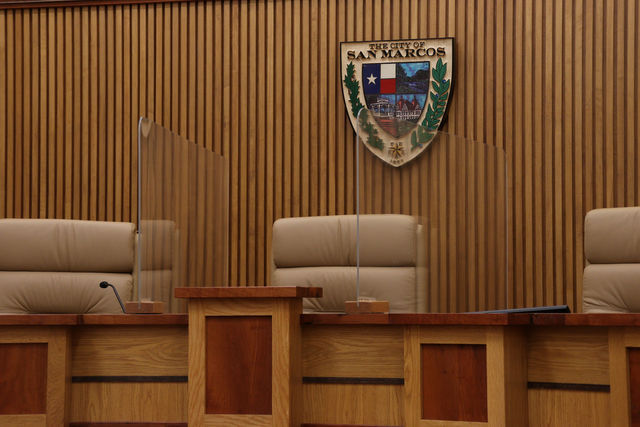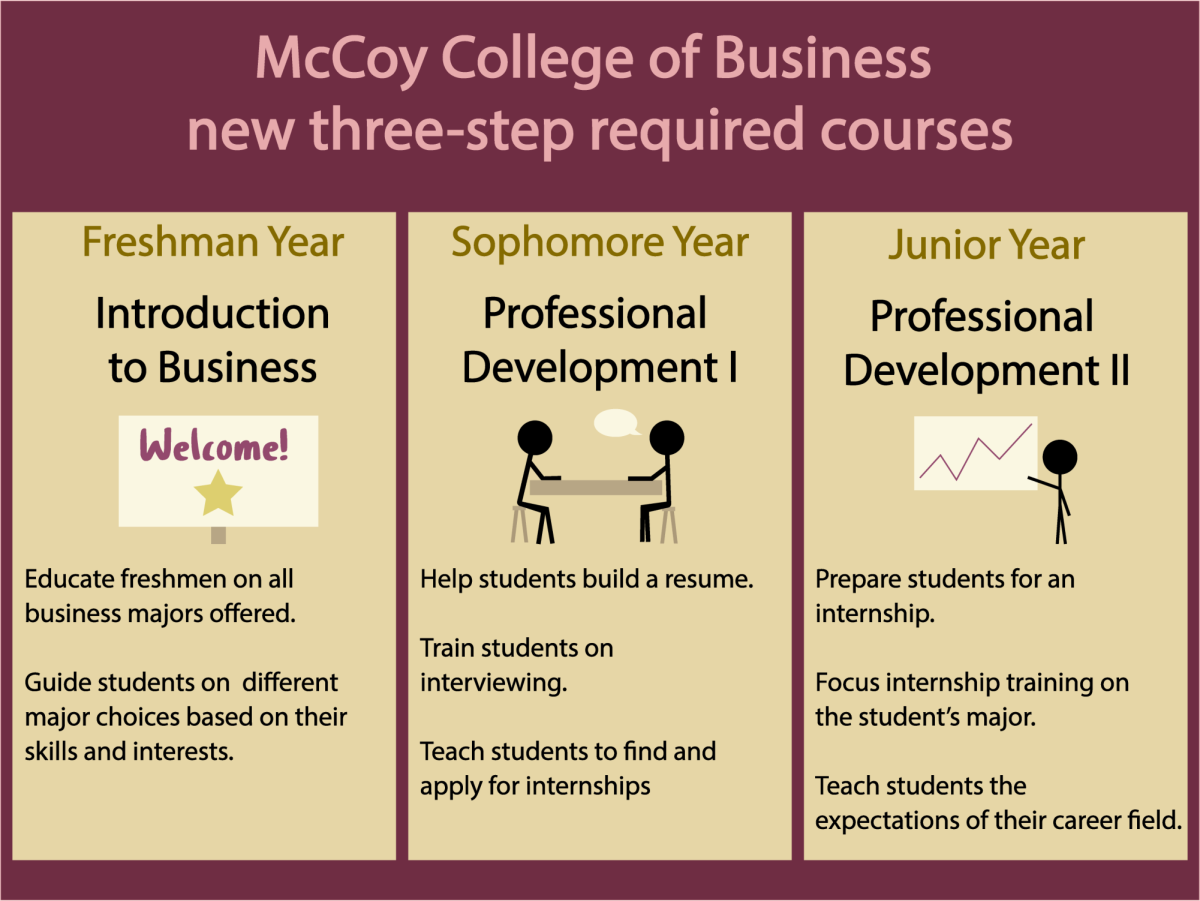Students packed LBJ 3-13.1, huddling outside to hear plans Texas State administration has to increase tuition for upcoming school years.
Texas State is proposing an overall 3.95% increase of tuition and fees for the 2021 and 2022 school years. Students would see a $222.45 increase to tuition in 2021 and a $231.30 increase in 2022.
By implementing this change, the university would gain $13.6 million in 2021 and $12.4 million in 2022 for new academic programs, financial aid and scholarships, employee benefits and student services.
University administration plans to fund a dozen new academic programs over the next two years, which they claim to be catered to degrees benefiting students in finding jobs following graduation.
Additionally, nearly $3 million will be designated for financial aid and scholarships. Student services will be given an additional $344,000 a year to help add positions to the Student Health Center and Counseling departments.
According to Vice President of Financial Support and Services Eric Algoe, Texas State faculty and staff resources are lagging behind other emerging research universities.
Employees have only seen a 1% raise over the past two years. In 2018, Texas State professors made $62,367 less a year than professors at the University of Texas at Dallas, which had 11,024 less students than Texas State.
An additional $5.9 million will be attributed to providing faculty raises and paying for their health benefits.
Currently, Texas State has the highest utilization of classrooms and labs among Texas public universities. In addition, Texas State has the highest student-to-faculty ratio of any of the emerging research institutions.
“We are the third lowest out of the 37 Texas public universities in terms of how much money the state gives us per student credit hour we teach,” Algoe said. “In other words, 34 of the 37 institutions get more money per semester credit hour then we do. So, we are doing all these amazing things and getting relatively very little support from the state because of the way the state funding formula works.”
The Hazlewood Act is a Texas law mandating 150 hours of tuition fees be waived for veterans and their dependents; Texas State waived $20 million of tuition in 2018. The state of Texas provides funding for 10% of the tuition waived and provided the university with $2 million last year. A remaining $18.6 million was left for the university to pay to instruct those students tuition free.
Texas State Provost and Vice President for Academic Affairs Gene Bourgeois, said the government mandating the Hazlewood Act impacts the university and cuts into the tuition paid by other students.
“Approximately $500-$550 of your annual tuition and fees was going to cover those unfunded Hazelwood exceptions,” Bourgeois said. “That has not changed, there is no cap to it, so it is a legislatively unfunded mandate for universities to bear. Again, we have done very well with our veterans and veteran’s dependent students, and we want more veterans and dependent students. It would just be nice if the state actually provided more direct subsidies to cover that cost.”
According to Algoe, Texas State is impacted by this law more than other institutions in the state. Texas State holds the number two ranking based on how much money is allocated to the Hazlelwood Act. Texas A&M University holds the top ranking, with a student body over 30,000 larger than Texas State in 2019. Although university administration upholds their commitment to educating veterans, the money used to pay for their education is being taken out of other students’ tuition.
Texas State spends about $14,900 per full-time student, which is 20% less than the average for emerging research universities in Texas. The university receives $111.90 per semester credit hour from the state, while other public universities receive as much as three to four times more per semester credit hour.
Catherine Wicker, director of student services for Student Government, is concerned with how the growing financial needs of student services will be met with such a small increase to funding.
“As I have been meeting with the different entities of (student services), the common concern they have is not having enough money to meet students’ needs,” Wicker said. “We talk about the Counseling Center having a two-to-three-week wait for our students to get in. The health center cannot keep physicians, so they are going through a traveling physician kind of program right now and they do not have all the resources students need.”
During the public tuition hearing, students demonstrated concern with the tuition increase due to it aiding the college debt deficit, causing a rise of financial stress and food insecurity at Texas State.
The PowerPoint presented at the tuition hearing can be accessed on the Texas State Budget office website: https://www.fss.txstate.edu/budget/. Students will be notified through email regarding the final decision to increase tuition by Texas State President Denise Trauth following the Board of Regents meeting Nov. 15.




